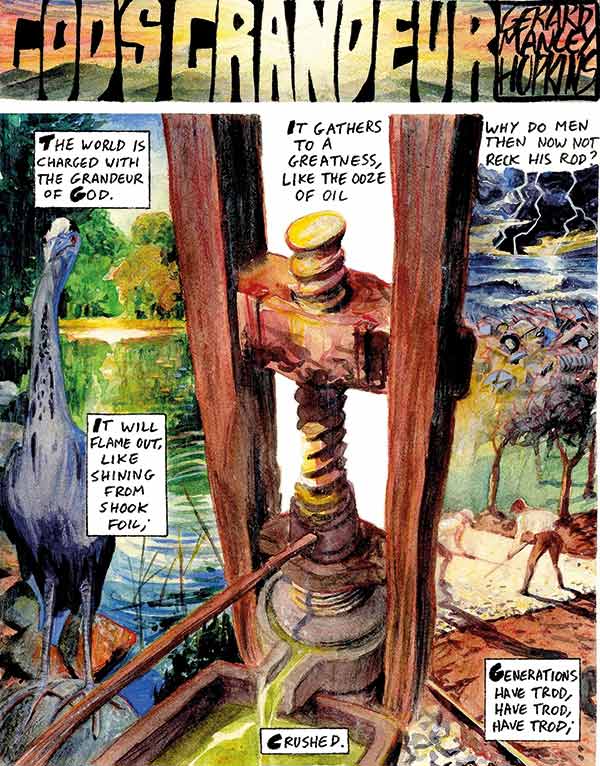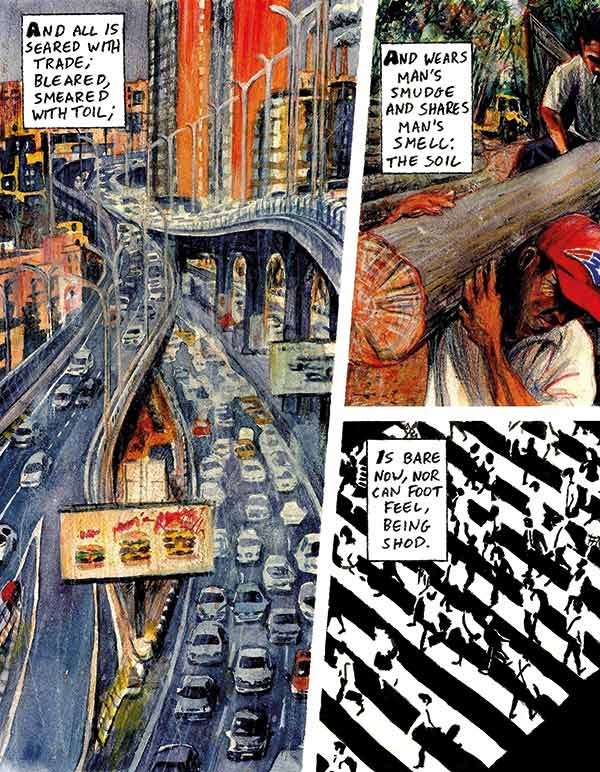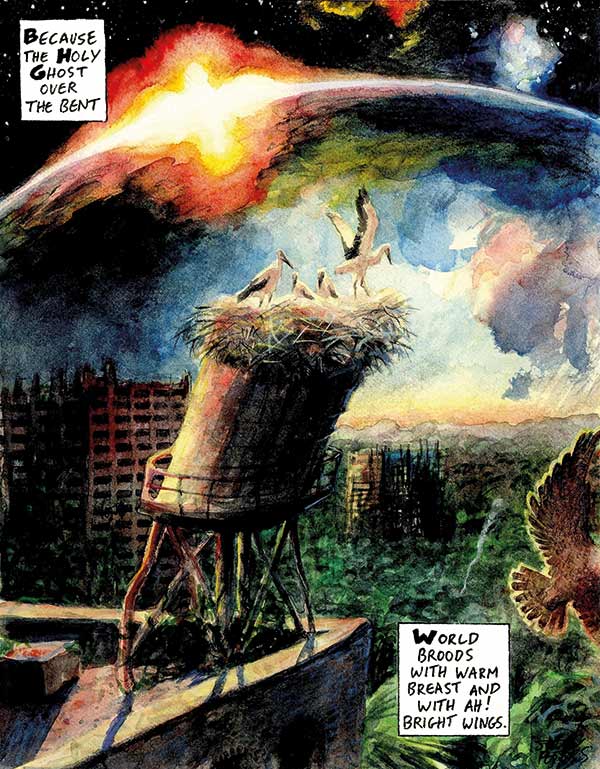Subtotal: $
Checkout-

Who Gets to Tell the Story?
-

Editors’ Picks: The Genesis of Gender
-

A Church in Ukraine Spreads Hope in Wartime
-

Readers Respond
-

Loving the University
-

Locals Know Best
-

Gerhard Lohfink: Champion of Community
-

When a Bruderhof Is Born
-

Peter Waldo, the First Protestant?
-

The Artificial Pancreas
-

From Scrolls to Scrolling in Synagogue
-

Computers Can’t Do Math
-

The Tech of Prison Parenting
-

Will There Be an AI Apocalypse?
-

Taming Tech in Community
-

Tech Cities of the Bible
-

Send Us Your Surplus
-

Masters of Our Tools
-

ChatGPT Goes to Church

God’s Grandeur: A Poetry Comic
A comic artist illustrates Gerard Manley Hopkins’s classic poem.
By Gerard Manley Hopkins and Julian Peters
August 31, 2024
Available languages: Deutsch
Next Article:
Explore Other Articles:




Artwork by Julian Peters. Used by permission.
God’s Grandeur
The world is charged with the grandeur of God.
It will flame out, like shining from shook foil;
It gathers to a greatness, like the ooze of oil
Crushed. Why do men then now not reck his rod?
Generations have trod, have trod, have trod;
And all is seared with trade; bleared, smeared with toil;
And wears man’s smudge and shares man’s smell: the soil
Is bare now, nor can foot feel, being shod.
And for all this, nature is never spent;
There lives the dearest freshness deep down things;
And though the last lights off the black West went
Oh, morning, at the brown brink eastward, springs –
Because the Holy Ghost over the bent
World broods with warm breast and with ah! bright wings.
Gerard Manley Hopkins
Already a subscriber? Sign in
Try 3 months of unlimited access. Start your FREE TRIAL today. Cancel anytime.































Henry Lewis
Well, I never would have thought to pair Gerald Manley Hopkins with this type of art and imaging, but I must confess it is a feast for the eyes and the mind, and lifts the heart to fresh new discoveries. What a wonderful piece. Thank you.
Linda wilson
One thing that I always admired about Hopkins is that he clung to his convictions even if that put him at odds with those he lived amongst or worked for. He was a Catholic in a country that looked down on Catholics and became a Jesuit, the order that was most looked down upon. (Those that remember the Porter in “Macbeth” Jesuits were the “equivocators: he l demeaned in a series of “Knock, Knock” jokes.) He was assigned as a priest to Ireland where he was a royalist in the midst of a people that wanted to boot the monarchy out of their country. He favored the teachings of Duns Scotus over those of Thomas Aquinas, the theologian of choice of the Jesuit order. He took Scotus’ concept of haecceitas, or “thisness” as a concept in his poetry. He also wrote poems no one in his order understood. His first poem “The Wreck of the Deutschland,” a eulogy to nuns that dies in a ship wreck, was submitted to a Catholic journal but was rejected largely because no one understood it. Obviously I like Hopkins a lot. Cordially, John Wilson, Jr.
Vicki Shuck
Wonderful visual depictions! Thank you!